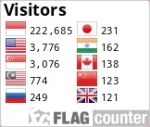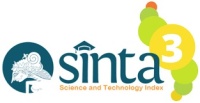Perlindungan Hukum oleh Negara Indonesia Terhadap Lingkungan dan Kesetaraan Gender
DOI:
https://doi.org/10.26623/julr.v7i1.8154Keywords:
Free-Trade Agreement, Gender Equality, Environmental Protection, FTA IE-CEPA, Perlindungan Lingkungan Hidup, Kesetaraan GenderAbstract
This research is prepared with the aim of assisting the national interests of Indonesia by examining legal protection for the environment and gender equality in the context of the expansion of the economy resulting from the implementation of a free-trade agreement. Considering the situation in the ICA-CEPA negotiations, where Canada demands that Indonesia commit to legal protection for the environment and gender equality in the context of the FTA before the agreement can be ratified, and considering that there is no juridical research examining Indonesia's commitments in these relevant issues, it becomes urgent to conduct this research to support the country in obtaining its national interests in ICA-CEPA. This research uses the juridical-normative research method with a statute approach and employs the legal material collection method of literature study as well as the qualitative analysis method. The research findings show that Indonesia has legal protection for the environment in the context of the FTA through the ISPO mechanism and provisions in the IE-CEPA. Regarding gender equality, Indonesia has legal protection through its membership in CEDAW and various applicable national legal instruments, as well as through cooperation with EFTA in women's entrepreneurship. The lack of knowledge (research gap) regarding the law creates an urgency for this research to fill that gap and help Indonesia. Here lies the novelty of the research, namely in complementing previous research to answer unanswered questions.
Penelitian ini disusun dengan tujuan untuk membantu kepentingan nasional Indonesia dengan mengkaji perlindungan hukum terhadap Lingkungan dan Kesetaraan Gender dalam konteks perluasan ekomomi hasil dari berlakunya suatu Free-Trade Agreement. Mengingat bahwa situasi dalam negosiasi ICA-CEPA, dimana Kanada menuntut Indonesia untuk memiliki komitmen hukum terlebih dahulu terhadap perlindungan lingkungan dan kesetaraan gender dalam konteks FTA agar perjanjian dapat disahkan, dan menimbang bahwa belum ada Penelitian Yuridis yang mengkaji komitmen Indonesia dalam isu yang relevan tersebut, maka hal ini menjadi urgensi dalam penyusunan penelitian ini agar dapat mendukung Negara memperoleh Kepentingan Nasional-nya dalam ICA-CEPA. Penelitian ini menggunakan Metode Penelitian Yuridis-Normatif dengan Pendekatan Statute Approach dan menggunakan Metode Pengumpulan Materi Hukum Studi Pustaka serta Metode Analisis Kualitatif. Hasil penelitian menunjukkan bahwa Indonesia telah memiliki perlindungan hukum untuk lingkungan dalam konteks FTA melalui mekanisme ISPO dan ketentuan dalam IE-CEPA. Mengenai kesetaraan gender, Indonesia memiliki perlindungan hukum melalui keanggotaannya dalam CEDAW dan dengan berbagai instrumen hukum nasional yang berlaku, serta melalui kerja sama dengan EFTA dalam kewirausahaan perempuan. Adanya kekosongan ilmu pengetahuan (research gap) tentang hukum,menimbulkan urgensi bagi penelitian ini untuk mengisi kekosongan tersebut, guna membantu Indonesia. Disinilah letak kebaruan penelitian, yaitu dalam melengkapi penelitian sebelumnya untuk menjawab pertanyaan yang belum terjawab.
References
Ahmed, Ghada. “Global Value Chains, Economic Upgrading and Gender in the Call Center Industry.” Global Value Chains, Economic Upgrading and Gender: Case Studies of the Horticulture, Tourism, and Call Center Industries, 2013.
Ansari, Mohd Arshad, and N.A. Khan. “Decomposing the Trade-Environment Nexus for High Income, Upper and Lower Middle Income Countries: What Do the Composition, Scale, and Technique Effect Indicate?” Ecological Indicators 121, no. May 2020 (February 2021): 107122. https://doi.org/10.1016/j.ecolind.2020.107122.
Araci, Özlem. “Progress of Countries in Work Life Balance: A Comparative Perspective.” Dumlupınar Üniversitesi Sosyal Bilimler Dergisi 64 (2020): 1–18. http://dergipark.gov.tr/dpusbe.
Arifin, Bondi, and Dhani Setyawan. “How Palm Oil Industry Is Having a Devastating Impact on Indonesia’s Health, Rainforests, and Labor Market.” Internaational Journal of Environmental Science and Technology 19, no. 12 (2022): 11775–88. https://doi.org/https://doi.org/10.1007/s13762-022-03923-4.
Austin, Kemen G., Amanda Schwantes, Yaofeng Gu, and Prasad S. Kasibhatla. “What Causes Deforestation in Indonesia?” Environmental Research Letters 14, no. 2 (2019). https://doi.org/10.1088/1748-9326/aaf6db.
Azhara, Melisa Ayu, and Siti Ruhama Mardhatillah. “Partisipasi Publik Dalam Penyusunan Dokumen Analisis Dampak Lingkungan Pasca Berlakunya Undang-Undang/Perppu Cipta Kerja.” Jurnal Hukum Ius Quia Iustum 30, no. 2 (2023): 256–76. https://doi.org/10.20885/iustum.vol30.iss2.art2.
Batrisyia, Briana, and Imam Haryanto. “Analisis Regulasi Pada Tanaman Transgenik Dalam Perlindungan Varietas Tanaman Bagi Pemulia Tanaman.” Jurnal USM Law Review 6, no. 3 (2023): 931–42. https://doi.org/http://dx.doi.org/10.26623/julr.v6i3.7433.
Cali, Massimiliano, Maryla Maliszewska, Zoryana Olekseyuk, and Israel Osorio-Rodarte. “Economic and Distributional Impacts of Free Trade Agreements: The Case of Indonesia.” Economic and Distributional Impacts of Free Trade Agreements: The Case of Indonesia, no. March (2019). https://doi.org/10.1596/1813-9450-9021.
Cerra, Valerie. “Trade and Inclusive Growth.” IMF Working Papers 2021, no. 074 (March 2021): 1. https://doi.org/10.5089/9781513572734.001.
Christiawan, Rio. “Implementasi Green Growth Economic Pada Industri Kelapa Sawit Melalui Sertifikasi ISPO.” Mulawarman Law Review 5, no. 1 (2020): 47–60. https://doi.org/10.30872/mulrev.v5i1.323.
Croes, Robertico, Jorge Ridderstaat, Monika Bąk, and Piotr Zientara. “Tourism Specialization, Economic Growth, Human Development and Transition Economies: The Case of Poland.” Tourism Management 82, no. January 2020 (2021). https://doi.org/10.1016/j.tourman.2020.104181.
Dadi. “Oil Palm Plantation Expansion : An Overview of Social and Ecological Impacts in Indonesia.” BIRCI-Journal 4(3) (2021): 6550–62. https://doi.org/https://doi.org/10.33258/birci.v4i3.2469.
Fauzi, Ahmad Fadli. “Peran Word Trade Organization (Wto) Dalam Perlindungan Lingkungan Di Era Liberalisasi Perdagangan.” Crepido 5, no. 1 (2023): 93–103. https://doi.org/10.14710/crepido.5.1.93-103.
Fitri, Anggi Rachma Zakia, and Heru Sugiyono. “Strategi Penanganan Pekerja Migran Indonesia Yang Bekerja Tidak Sesuai Dengan Kontrak Kerja.” Jurnal USM Law Review 6, no. 3 (2023): 972–87. https://doi.org/http://dx.doi.org/10.26623/julr.v6i3.7568.
Flaurensia Tololiu. “Kerjasama Indonesia - EFTA Comprehensive Economic Partnership Agreement (IE-CEPA) Sebagai Pendorong Perbaikan Ekonomi Indonesia Tahun 2020-2021.” Universitas Kristen Satya Wacana Salatiga, 2022. https://repository.uksw.edu/handle/123456789/26828.
Greenstone, Michael, and Qing Fan. “Indonesia’s Worsening Air Quality and Its Impact on Life Expectancy.” Air Quality Life Index, no. March (2019): 1–10.
Gupta, Rakshit, Shastri Arnav, and Laukik Jadhav. “Conflicts between Environment and Free Trade.” International Journal Of Law Management & Humanities 4, no. 4 (2021): 3733–41. https://doi.org/https://doij.org/10.10000/IJLMH.111786.
Guswara, Arrafi Bima, and Ali Imran Nasution. “Dinamika Konstitusionalitas Undang-Undang Cipta Kerja Pasca Putusan Mahkamah Konstitusi Nomor 91/PUU-XVIII/2020 Dan 54/PUU-XXI/2023.” Jurnal USM Law Review 6, no. 3 (2023): 1052–72. https://doi.org/http://dx.doi.org/10.26623/julr.v6i3.7844.
Hadi, Syaiful, Djaimi Bakce, Didi Muwardi, Jum Yusri, and Fanny Septya. “Strategi Percepatan Sertifikasi ISPO Di Perkebunan Kelapa Sawit Swadaya.” Analisis Kebijakan Pertanian 21, no. 1 (2023): 21–42. https://doi.org/http://dx.doi.org/10.21082/akp.v21n1.2023.21-42.
“Hasil Wawancara Dengan Narasumber, Bapak Arianto Christian Hartono, SE, MA, Ph.D Selaku Kepala Subdirektorat Kerjasama Ekonomi Internasional, Badan Perencanaan Pembangunan Nasional,” n.d.
Hidayah, Nur, Angelica Caroline, and Kevin Karunia Bakti. “Pembekalan Kesuksesan Wirausaha Wanita Pada Ukm Kerajinan Di Serang.” Prima : Portal Riset Dan Inovasi Pengabdian Masyarakat 1, no. 4 (2022): 43–52. https://doi.org/10.55047/prima.v1i3.191.
Indonesia - EFTA Comprehensive Economic Partnership Agreement (n.d.).
Kementrian Pemberdayaan Perempuan dan Perlindungan Anak. “Indonesia’ s Eighth Periodic CEDAW Report,” 2019.
Klugman, J. “The 2030 Agenda and the Potential Contribution of Trade to Gender Equality.” Global Economic Governance, no. September (2016). https://www.tralac.org/images/docs/10610/the-2030-agenda-and-the-potential-contribution-of-trade-to-gender-equality-ictsd-september-2016.pdf.
Lam, Wan Yee, Michal Kulak, Sarah Sim, Henry King, Mark A.J. Huijbregts, and Rebecca Chaplin-Kramer. “Greenhouse Gas Footprints of Palm Oil Production in Indonesia over Space and Time.” Science of the Total Environment 688 (2019): 827–37. https://doi.org/10.1016/j.scitotenv.2019.06.377.
Meijaard, Erik, Thomas M. Brooks, Kimberly M. Carlson, Eleanor M. Slade, John Garcia-Ulloa, David L.A. Gaveau, Janice Ser Huay Lee, et al. “The Environmental Impacts of Palm Oil in Context.” Nature Plants 6, no. 12 (2020): 1418–26. https://doi.org/10.1038/s41477-020-00813-w.
Muhammad, Rafli Fadilah, and Rianda Dirkareshza. “Legalitas Penerapan Central Bank Digital Currency ( CBDC ) Di Indonesia.” Jurnal USM Law Review 6, no. 3 (2023): 913–30. https://doi.org/http://dx.doi.org/10.26623/julr.v6i3.7370.
Muslimah, Siti, and Emmy Latifah. “Perdagangan Internasional Dan Perlindungan Lingkungan Hidup: Sebuah ‘Trade-Off’ Pada Sistem Wto Yang Memerlukan Penyelesaian.” Jurnal Bina Mulia Hukum 6, no. 2 (2022): 273–94. https://doi.org/10.23920/jbmh.v6i2.689.
Nuraeni, Yeni, and Ivan Lilin Suryono. “Analisis Kesetaraan Gender Dalam Bidang Ketenagakerjaan Di Indonesia.” Nakhoda: Jurnal Ilmu Pemerintahan 20, no. 1 (2021): 68–79. https://doi.org/10.35967/njip.v20i1.134.
Paryadi, Deky. “Analisis Dampak Dan Strategi Untuk Meningkatkan Akses Pasar Indonesia Dalam Menghadapi Indonesia EFTA Comprehensive Economic Partnership Agreement (IE CEPA).” Jurnal Ekonomi Indonesia 9, no. 2 (2020): 151–64. https://doi.org/10.52813/jei.v9i2.25.
Peraturan Menteri Pemberdayaan Perempuan dan Perlindungan Anak Nomor 5 Tahun 2015 Penyediaan Sarana Kerja Yang Responsif Gender dan Peduli Anak di Tempat Kerja (n.d.).
Peraturan Menteri Pertanian Republik Indonesia Nomor 38 Tahun 2020 Tentang Penyelenggaraan Sertifikasi Perkebunan Kelapa Sawit Berkelanjutan Indonesia (n.d.).
“Peraturan Pemerintah Pengganti Undang-Undang (Perpu) Nomor 2 Tahun 2022 Tentang Cipta Kerja,” n.d.
Perpres Nomor 44 Tahun 2020 tentang Sistem Sertifikasi Perkebunan Kelapa sawit Berkelanjutan Indonesia (n.d.).
Petrenko, Chelsea, Julia Paltseva, and Stephanie Searle. “Ecological Impacts of Palm Oil Expansion in Indonesia | International Council on Clean Transportation.” Washington (US): International Council on Clean Transportation., no. July (2016): 1–21.
Porter, Gareth. “Trade Competition and Pollution Standards: ‘Race to the Bottom’ or ‘Stuck at the Bottom’?” Journal of Environment and Development 8, no. 2 (1999): 133–51. https://doi.org/10.1177/107049659900800203.
Qaim, Matin, Kibrom T. Sibhatu, Hermanto Siregar, and Ingo Grass. “Environmental, Economic, and Social Consequences of the Oil Palm Boom.” Annual Review of Resource Economics 12 (2020): 321–44. https://doi.org/10.1146/annurev-resource-110119-024922.
Rompas, Benadito, and Tri Hayati. “Implikasi Kebijakan Sektor Hilir Pertambangan: Ancaman Dan Perlindungan Terhadap Lingkungan Hidup.” Jurnal Ius Constituendum 7, no. 1 (2022): 177–91. https://doi.org/10.26623/jic.v7i1.4908.
Rubiano-Matulevich, Eliana, and Mariana Viollaz. “Gender Differences in Time Use: Allocating Time between the Market and the Household.” Gender Differences in Time Use: Allocating Time between the Market and the Household, no. August (2019). https://doi.org/10.1596/1813-9450-8981.
SECO. “Cooperation Programme 2021 – 2024,” 2021. https://www.seco-cooperation.admin.ch/secocoop/de/home/laender/ghana.html.
Shigetomi, Yosuke, Yuichi Ishimura, and Yuki Yamamoto. “Trends in Global Dependency on the Indonesian Palm Oil and Resultant Environmental Impacts.” Scientific Reports 10, no. 1 (2020): 1–11. https://doi.org/10.1038/s41598-020-77458-4.
Siagian, Abdhy Walid, Habib Ferian Fajar, and Rozin Falih Alify. “Sustainable Development Goals: Polemic Study of Analysis of Environmental Impacts After Perppu Cipta Kerja.” Ikatan Penulis Mahasiswa Hukum Indonesia Law Journal 3, no. 2 (2023): 255–74. https://doi.org/10.15294/ipmhi.v3i2.67091.
“Siaran Pers Kementerian Koordinator Bidang Perekonomian Republik Indonesia (Siaran Pers HM.4.6/301/Set.M.Ekon.3/08/2023)No Title.” n.d.
Siswanto, Carissa Amanda, Wishnu Kurniawan, and Dita Birahayu. “Indonesia’s Participation In IE-CEPA: An Obligation or Policy?” Jurnal Penelitian Hukum De Jure 23, no. 2 (2023): 255. https://doi.org/10.30641/dejure.2023.v23.255-272.
World Bank and World Trade Organization. “Women and Trade: The Role of Trade in Promoting Gender Equality.” Women and Trade: The Role of Trade in Promoting Gender Equality, 2020. https://doi.org/10.1596/978-1-4648-1541-6.
Wulandari, Brigitta. “Sustainable Development Goals Dalam Upaya Penguatan Pembangunan Kelapa Sawit Indonesia Melalui Indonesian Sustainable Palm Oil.” Universitas Jember, 2021.
Downloads
Additional Files
Published
Issue
Section
License
The journal holds the copyright for each article published with work licensed simultaneously under a Creative Commons Attribution 4.0 International License, which allows others to share the work with an acknowledgment of the authorship and early publication of the work in this journal.










